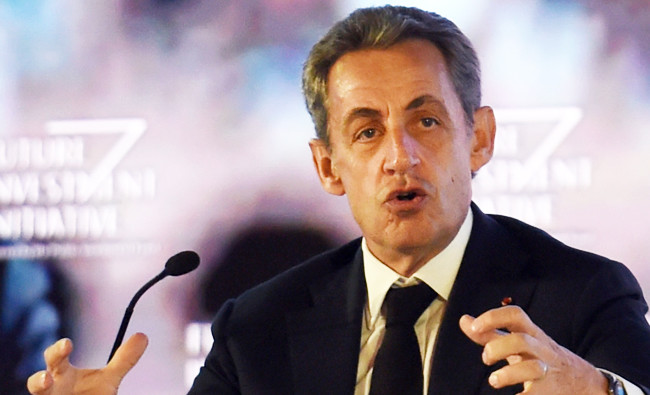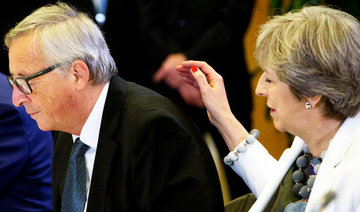LONDON: Britain’s decision to leave the European Union was “crazy” for the UK and Europe, and a new European project should be launched — one that the UK could sign up to — if the continent was to avoid disintegration.
That was the stark message from former French President Nicolas Sarkozy speaking at the Future Investment Initiative in Riyadh on Thursday.
He said: “At a moment when Europe is less than 10 percent of the global population, Europe needs to come together. It must not divide itself. Europe is going to lose the second [largest] European economy and the UK without Europe is going to discover problems associated with isolationism. Europe needs the UK and the UK needs Europe,” Sarkozy told the gathering organized by Saudi Arabia’s Public Investment Fund.
He added: “Brexit is absurd because it’s the first stage of a process of disintegration.”
Sarkozy inferred Brexit could lead to more division within Europe, and he flagged up independence movements in Catalonia, Scotland and Belgium to illustrate the dangers of European fragmentation.
“I think the only way to react to Brexit is to put a new European project on the table. There are now two Europes — the Europe of the euro and the Europe of the Union. We have to listen to the European population. Europe after 60 years needs a new vision, a new future.”
Only then, said Sarkozy in ebullient mood, could another referendum be put to the English that demonstrated European readiness to create a new Union with new perspectives and new rules.
“Then the question to the UK would be: do you want to be on board or not? I am persuaded that they will say yes, they will want to be a part of it.”
According to Sarkozy a division with the English didn’t make sense. “We have fought together in two world wars .We like the same music, we watch the same films. We read the same books, we have the same culture. We are European.”
Said Sarkozy: “We do not have the right to assist in the separation which will end badly because there is no separation that ends well. It is time for a great, new European initiative.”




























